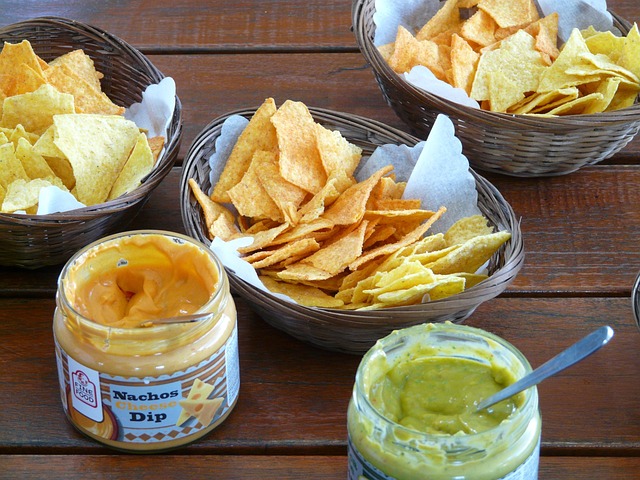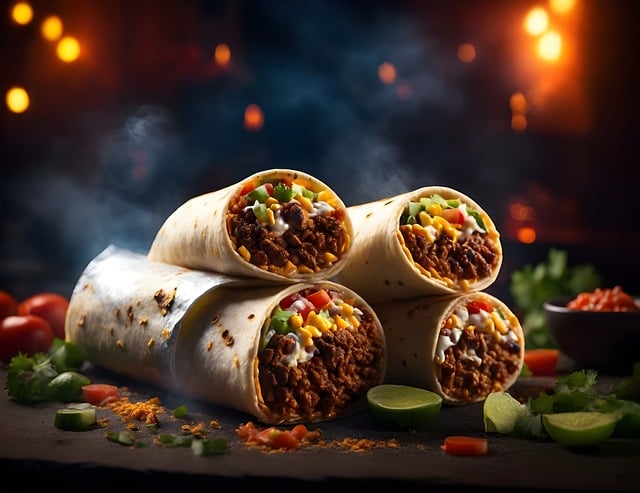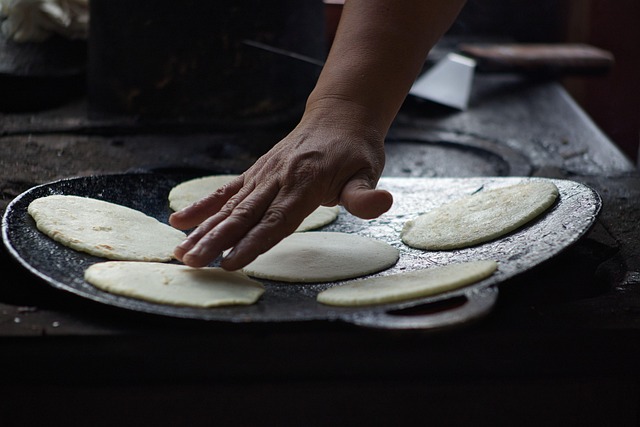Discover the authentic taste of Mexican market vendors' natural tortilla chips, made with traditional methods and high-quality, locally sourced ingredients. These homemade chips offer a healthier alternative, rich in vitamins E and magnesium, with lower sodium content than commercial brands. In vibrant local markets, donkey-driven carts sell these unique, eco-friendly snacks, reflecting Mexico's culinary heritage and connecting consumers to its rich agricultural roots.
Discover the vibrant world of Mexican markets, where the art of making homemade tortilla chips thrives. From the traditional methods of crafting natural tortilla chips by hand to the unique shopping experience of donkey-driven markets, this article explores the cultural significance and health benefits of these crispy treats. Uncover the differences between traditional and modern tortilla production techniques, and learn why Mexican markets stand out for their authentic, natural tortilla chips.
- The Art of Making Natural Tortilla Chips at Home
- Donkey-Driven Markets: A Unique Shopping Experience in Mexico
- Traditional vs Modern Tortilla Production: What Sets Mexican Markets Apart?
- Health Benefits and Nutritional Facts of Homemade Tortilla Chips
- Exploring the Cultural Significance of Tortilla Chips in Mexican Markets
The Art of Making Natural Tortilla Chips at Home

Making natural tortilla chips at home is an art that many Mexican market vendors have perfected. The process starts with carefully selected, high-quality corn or wheat flour, ensuring a light and crispy texture. Instead of relying on artificial flavors, these chips are seasoned with simple, natural ingredients like sea salt, garlic powder, and chili flakes for a taste as authentic as it is tantalizing.
The secret lies in the cooking method; vendors often use traditional techniques passed down through generations. Freshly grated vegetable oil or lard is heated to the perfect temperature, allowing the dough to fry evenly, resulting in chips that are golden brown, crisp, and oh-so-moreish. These homemade chips not only offer a healthier alternative but also capture the essence of Mexican culinary heritage, one bite at a time.
Donkey-Driven Markets: A Unique Shopping Experience in Mexico

In many Mexican markets, a unique and charming sight awaits—donkey-driven carts selling homemade tortilla chips. This traditional method of transportation adds a touch of old-world charm to the bustling atmosphere of local markets. Visitors can witness the gentle rhythm as donkeys stroll through the aisles, carrying colorful displays of fresh produce and artisanal food items, including naturally made tortilla chips.
The experience is not just visually appealing but also environmentally friendly, aligning with modern trends in sustainable shopping. These donkey-driven markets offer a chance to immerse oneself in Mexican culture, where natural tortilla chips, crafted with care, are a staple. The chips, often made from locally sourced ingredients, provide a taste of authentic Mexico, making the market a must-visit destination for food enthusiasts and those seeking a unique shopping journey.
Traditional vs Modern Tortilla Production: What Sets Mexican Markets Apart?

In traditional Mexican markets, the art of tortilla-making is an age-old practice passed down through generations. Producers use time-honored techniques, often employing donkeys to grind corn into a course meal, preserving a natural Tortilla Chips process that has stood the test of time. This method results in chips with a distinct, earthy flavor and a chewy texture that sets them apart from their mass-produced counterparts.
Modern markets, while offering a wide variety of options, have seen an influx of commercial tortilla chip producers. These companies often prioritize efficiency and consistency over the natural approach. Their production methods may involve industrial grinders and high-temperature cooking, leading to chips with a crisper texture but potentially sacrificing the authentic taste and quality that traditional donkeys-powered Tortilla Chips offer.
Health Benefits and Nutritional Facts of Homemade Tortilla Chips

Homemade tortilla chips, crafted from simple, natural ingredients like corn or wheat flour and olive oil, offer a healthier alternative to their store-bought counterparts. Free from artificial flavors, colors, and preservatives often found in commercial varieties, these chips are a nutritious choice for snack enthusiasts. The process of making natural tortilla chips at home allows you to control the quality and quantity of fat, ensuring a more balanced diet.
In terms of nutritional facts, homemade tortilla chips can be an excellent source of essential vitamins and minerals, such as vitamin E and magnesium, depending on the ingredients used. They are typically lower in sodium than many store-bought brands, making them appealing for those watching their salt intake. Additionally, the use of olive oil, known for its heart-healthy benefits, contributes to a healthier snacking experience without compromising on taste.
Exploring the Cultural Significance of Tortilla Chips in Mexican Markets

In Mexican markets, the simple yet multifaceted nature of natural tortilla chips highlights a deeper cultural significance. These chips, often made by donkeys grinding corn into masa and shaping it into thin, crispy tortillas, are more than just a snack; they’re a culinary representation of Mexico’s rich heritage. The process of making them is an art passed down through generations, reflecting the country’s strong connection to its agricultural roots. Each bite of these natural tortilla chips transports consumers not only to the vibrant stalls of local markets but also to the heart of Mexican tradition.
The popularity of these homemade chips among locals and tourists alike underscores their role as a unifying element in Mexican culture. They are a common sight at family gatherings, street festivals, and everyday meals, fostering a sense of community and shared experience. The diverse shapes and flavors available in these markets further emphasize the versatility of tortilla chips as a platform for local ingredients and culinary creativity. Whether made with simple, natural ingredients or infused with unique spices, they serve as a delicious emblem of Mexico’s vibrant food culture.
Mexican markets offer a unique blend of tradition and innovation with their homemade tortilla chips, as demonstrated by the donkey-driven stalls and time-honored production methods. The art of making natural tortilla chips at home is not just a culinary delight but also carries cultural significance. With health benefits that include higher fiber content and lower oil usage compared to store-bought options, these chips are a testament to the enduring popularity of traditional Mexican foodways. Exploring these markets is a journey into the heart of Mexican culture, where every crunch echoes the rich history and vibrant tapestry of their culinary traditions.
